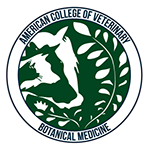Veterinary Botanical Medicine and Equids
Journals publishing peer-reviewed articles on botanical medicine for equines:
• Equine Veterinary Journal
• Veterinary Parasitology
• American Journal of Veterinary Research
• Canadian Veterinary Journal
• Compendium Continuing Education
• Veterinary Journal
• Parasitology Research
• Equine Veterinary Journal
• Veterinary Parasitology
• American Journal of Veterinary Research
• Canadian Veterinary Journal
• Compendium Continuing Education
• Veterinary Journal
• Parasitology Research
Despite the 500% growth in herbal administrations to horses over the past 16 years (28) published research on equids and botanical medicine is still relatively limited. A review by Williams etal 2008 in Veterinary Journal pertinent to herbal supplementation in horses discussed several equine studies including one where Panax ginseng has been found to exert an inhibitory effect on pro-inflammatory cytokines and cyclooxygenase-2 expression; that equine studies have tested the anti-inflammatory effects of a single dose of ginger, post-exercise; echinacea was reported to have anti-inflammatory and antioxidant properties; yucca contains steroid-like saponins, which produce anti-inflammatory, antioxidant and anti-spasmodic effects and horses fed garlic at >0.2g/kg per day developed Heinz body anaemia (29). Another study suggested that Sea Buckthorn berry may be efficacious in the prevention of worsening of non-glandular gastric ulcers in horses during times of stress (30). These point to potential benefits in equine health.
The recognition of the potential of botanical medicine to improve equine health care and expand treatment options is further exemplified by investigations into multiple plant agents for challenging conditions such as Prunella vulgaris for equine infectious anemia virus (EIAV) (31), and a review by Tinworth etal 2010 in Veterinary Record on the potential for botanical medicines to manage insulin resistance and hyperinsulinaemia in non-obese horses based on human and laboratory animal data (32).
More recent studies have explored the use of plant medicines for the management of ecto and endo parasites, including the use of essential oils for donkey lice published in the Equine Veterinary Journal in 2016 (33) and plants showing significant anthelmintic activity against strongyle nematodes published in Veterinary Parasitology 2015 (34).
Chinese Herbal Medicine for equine reproductive management and respiratory disease has been discussed in the Compendium for Continuing Education (2011) (35).
Petition Appendix IX-D outlines outlines the abstracts of 22 recent journal articles demonstrating selected publications on botanical medicine research on equids.
The recognition of the potential of botanical medicine to improve equine health care and expand treatment options is further exemplified by investigations into multiple plant agents for challenging conditions such as Prunella vulgaris for equine infectious anemia virus (EIAV) (31), and a review by Tinworth etal 2010 in Veterinary Record on the potential for botanical medicines to manage insulin resistance and hyperinsulinaemia in non-obese horses based on human and laboratory animal data (32).
More recent studies have explored the use of plant medicines for the management of ecto and endo parasites, including the use of essential oils for donkey lice published in the Equine Veterinary Journal in 2016 (33) and plants showing significant anthelmintic activity against strongyle nematodes published in Veterinary Parasitology 2015 (34).
Chinese Herbal Medicine for equine reproductive management and respiratory disease has been discussed in the Compendium for Continuing Education (2011) (35).
Petition Appendix IX-D outlines outlines the abstracts of 22 recent journal articles demonstrating selected publications on botanical medicine research on equids.
REFERENCES:
28 Silver R, Bookout B, Karreman H Documentation of Trends in the Public Acceptance of Botanical Therapies: Consumer Buying Patterns, patterns of Use and Industry Correlates Jan 2016
29 Williams CA, Lamprecht ED. Some commonly fed herbs and other functional foods in equine nutrition: a review. Vet J. 2008 Oct;178(1):21-31.
30 Reese RE, Andrews FM, Elliott SB, et al. The effect of seabuckthorn berry extract (Seabuck Complete) on prevention and treatment of gastric ulcers in horses. Presented at the Proceedings of the 9th International Equine Colic Research Symposium, Liverpool. June 8–11, 2008.
31 Brindley MA, Widrlechner MP, McCoy JA, Murphy P, Hauck C, Rizshsky L, Nikolau B, Maury W Inhibition of lentivirus replication by aqueous extracts of Prunella vulgaris. Virol J. 2009 Jan 20;6:8
32 Tinworth KD1, Harris PA, Sillence MN, Noble GK. Potential treatments for insulin resistance in the horse: a comparative multi-species review. Vet J. 2010 Dec;186(3):282-91.
33 Ellse L, Sands B, Burden FA, Wall R. Essential oils in the management of the donkey louse, Bovicola ocellatus. Equine Vet J. 2016 May;48(3):285-9.
34 Peachey LE, Pinchbeck GL, Matthews JB, Burden FA, Mulugeta G, Scantlebury CE, Hodgkinson JE. An evidence-based approach to the evaluation of ethnoveterinary medicines against strongyle nematodes of equids. Vet Parasitol. 2015 May 30;210(1-2):40-52.
35 Shmalberg J, Xie H. Acupuncture and Chinese herbal medicine for treating orses.Compend Contin Educ Vet. 2011 May;33(5):E1-11.
29 Williams CA, Lamprecht ED. Some commonly fed herbs and other functional foods in equine nutrition: a review. Vet J. 2008 Oct;178(1):21-31.
30 Reese RE, Andrews FM, Elliott SB, et al. The effect of seabuckthorn berry extract (Seabuck Complete) on prevention and treatment of gastric ulcers in horses. Presented at the Proceedings of the 9th International Equine Colic Research Symposium, Liverpool. June 8–11, 2008.
31 Brindley MA, Widrlechner MP, McCoy JA, Murphy P, Hauck C, Rizshsky L, Nikolau B, Maury W Inhibition of lentivirus replication by aqueous extracts of Prunella vulgaris. Virol J. 2009 Jan 20;6:8
32 Tinworth KD1, Harris PA, Sillence MN, Noble GK. Potential treatments for insulin resistance in the horse: a comparative multi-species review. Vet J. 2010 Dec;186(3):282-91.
33 Ellse L, Sands B, Burden FA, Wall R. Essential oils in the management of the donkey louse, Bovicola ocellatus. Equine Vet J. 2016 May;48(3):285-9.
34 Peachey LE, Pinchbeck GL, Matthews JB, Burden FA, Mulugeta G, Scantlebury CE, Hodgkinson JE. An evidence-based approach to the evaluation of ethnoveterinary medicines against strongyle nematodes of equids. Vet Parasitol. 2015 May 30;210(1-2):40-52.
35 Shmalberg J, Xie H. Acupuncture and Chinese herbal medicine for treating orses.Compend Contin Educ Vet. 2011 May;33(5):E1-11.
Download the file below to view Appendix IX-D in its entirety. Source links are included for review.
| appendix_ixd_with_source_links.pdf |

